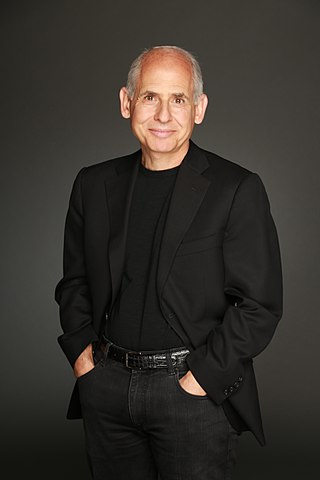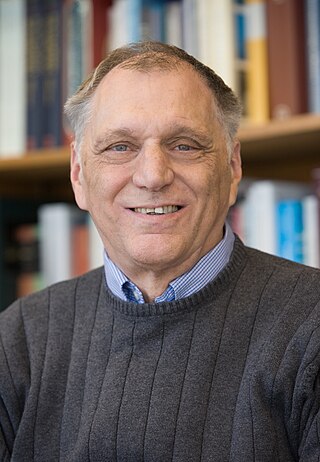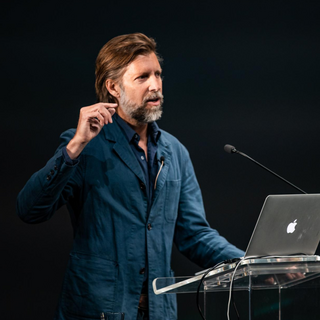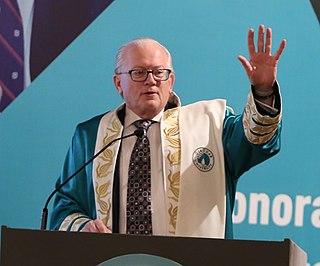Related Research Articles

Neuroscience is the scientific study of the nervous system, its functions and disorders. It is a multidisciplinary science that combines physiology, anatomy, molecular biology, developmental biology, cytology, psychology, physics, computer science, chemistry, medicine, statistics, and mathematical modeling to understand the fundamental and emergent properties of neurons, glia and neural circuits. The understanding of the biological basis of learning, memory, behavior, perception, and consciousness has been described by Eric Kandel as the "epic challenge" of the biological sciences.

Salon is an American politically progressive/liberal news and opinion website created in 1995. It publishes articles on U.S. politics, culture, and current events.

Deepak Chopra is an Indian-American author and alternative medicine advocate. A prominent figure in the New Age movement, his books and videos have made him one of the best-known and wealthiest figures in alternative medicine. His discussions of quantum healing have been characterised as technobabble – "incoherent babbling strewn with scientific terms" which drives those who actually understand physics "crazy" and as "redefining Wrong".

Phineas P. Gage (1823–1860) was an American railroad construction foreman remembered for his improbable[B1] survival of an accident in which a large iron rod was driven completely through his head, destroying much of his brain's left frontal lobe, and for that injury's reported effects on his personality and behavior over the remaining 12 years of his life—effects sufficiently profound that friends saw him as "no longer Gage".
The neuroscience of religion, also known as neurotheology and as spiritual neuroscience, attempts to explain religious experience and behaviour in neuroscientific terms. It is the study of correlations of neural phenomena with subjective experiences of spirituality and hypotheses to explain these phenomena. This contrasts with the psychology of religion which studies mental, rather than neural states.
In philosophy and neuroscience, neuroethics is the study of both the ethics of neuroscience and the neuroscience of ethics. The ethics of neuroscience concerns the ethical, legal and social impact of neuroscience, including the ways in which neurotechnology can be used to predict or alter human behavior and "the implications of our mechanistic understanding of brain function for society... integrating neuroscientific knowledge with ethical and social thought".
Neuropsychiatry is a branch of medicine that deals with psychiatry as it relates to neurology, in an effort to understand and attribute behavior to the interaction of neurobiology and social psychology factors. Within neuropsychiatry, the mind is considered "as an emergent property of the brain", whereas other behavioral and neurological specialties might consider the two as separate entities. Those disciplines are typically practiced separately.

Steven Paul Novella is an American clinical neurologist and associate professor at Yale University School of Medicine. Novella is best known for his involvement in the skeptical movement as a host of The Skeptics' Guide to the Universe podcast and as the president of the New England Skeptical Society. He is a fellow of the Committee for Skeptical Inquiry (CSI).

Flim-Flam! Psychics, ESP, Unicorns, and Other Delusions is a 1980 book by magician and skeptic James Randi about paranormal, occult, and pseudoscience claims. The foreword is by science fiction author Isaac Asimov. Randi explores topics which he says that scientists and the media are too willing to promote without skepticism and proper expertise.

Daniel Gregory Amen is an American celebrity doctor who practices as a psychiatrist and brain disorder specialist as director of the Amen Clinics. He is a five-time New York Times best-selling author as of 2012.
Brian T. Andrews is a neurosurgeon specializing in pediatric neurosurgery, minimally invasive spinal surgery, brain tumors, neuro-oncology, neurotrauma, spinal stenosis and general neurosurgery. He is chairman of the Department of Neurosciences at California Pacific Medical Center and a founder of the California Pacific Neuroscience Institute.

Larry Ryan Squire is a professor of psychiatry, neurosciences, and psychology at the University of California, San Diego, and a Senior Research Career Scientist at the Veterans Affairs Medical Center, San Diego. He is a leading investigator of the neurological bases of memory, which he studies using animal models and human patients with memory impairment.

In a 1927 letter to Sigmund Freud, Romain Rolland coined the phrase "oceanic feeling" to refer to "a sensation of 'eternity'", a feeling of "being one with the external world as a whole", inspired by the example of Ramakrishna, among other mystics. According to Rolland, this feeling is the source of all the religious energy that permeates in various religious systems, and one may justifiably call oneself religious on the basis of this oceanic feeling alone, even if one renounces every belief and every illusion. Freud discusses the feeling in his Future of an Illusion (1927) and Civilization and Its Discontents (1929). There he deems it a fragmentary vestige of a kind of consciousness possessed by an infant who has not yet differentiated themself from other people and things.

Consciousness after death is a common theme in society and culture, and the belief in some form of life after death is a feature of many religions. However, scientific research has established that the physiological functioning of the brain, the cessation of which defines brain death, is closely connected to mental states.

Indre Viskontas is a Lithuanian-Canadian neuroscientist and operatic soprano. She holds a Ph.D. in cognitive neuroscience and a M.M. in opera. She is a Professor of Psychology at the University of San Francisco and serves on the faculty at the San Francisco Conservatory of Music. She is also the Creative Director of Pasadena Opera.
K. C. Cole is an American science writer, author, radio commentator and professor emerita at the USC Annenberg School for Communication and Journalism. She has covered science for The Los Angeles Times since 1994, as well as writing for many other publications, and has been described as "the queen of the metaphor in science writing".

James Nestor is an author and journalist who has written for Outside, Scientific American, Dwell, National Public Radio, The New York Times, The Atlantic, Men's Journal, the San Francisco Chronicle Magazine, and others. His 2020 nonfiction book, Breath: The New Science of a Lost Art, was an international bestseller, debuting on the Wall Street Journal and Los Angeles Times bestseller lists and spending 18 weeks on the New York Times Best Sellers in its first year of release. Breath won the award for Best General Nonfiction Book of 2020 by the American Society of Journalists and Authors and was a finalist for the Royal Society Science Book Prize. Breath was translated into more than 35 languages in 2022.

Stephen Michael Stahl is an author and professor of psychiatry with expertise in psychopharmacology. He is currently a professor at the University of California, San Diego and serves as Honorary Fellow in psychiatry department at the University of Cambridge. He is also the chairman of Neuroscience Education Institute (NEI) and Arbor Scientia Group.

When Breath Becomes Air is a non-fiction autobiographical book written by American neurosurgeon Paul Kalanithi. It is a memoir about his life and battling stage IV metastatic lung cancer. It was posthumously published by Random House on January 12, 2016.

Scott James is a veteran journalist and bestselling author. His reporting has often appeared in The New York Times, and he is the recipient of three Emmy awards for his work in television news.